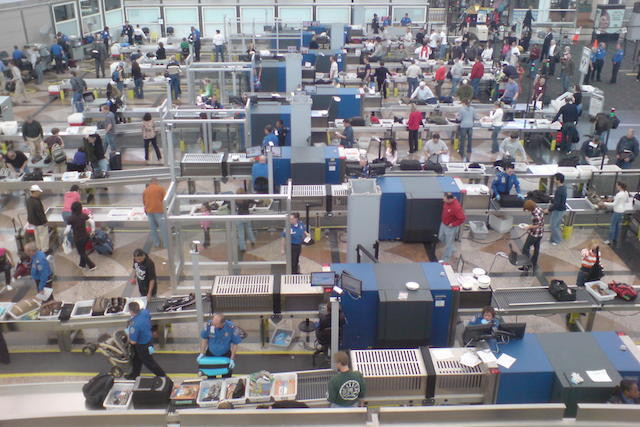Officials from the United States and the European Union met on 17 May to discuss the possibility of a ban on laptops and tablets in cabin baggage.
The ban was rejected at the talks, but according to a joint statement the US and EU “reaffirmed their commitment to continue working closely together on aviation security”. Officials will be meeting again in Washington DC next week to “further assess shared risks and solutions for protecting airline passengers, whilst ensuring the smooth functioning of global air travel.”
This week’s meeting took place following news that the US would extend its ban on in-flight laptops and other large electronics on flights coming from Europe. This would mean that all large electronics would not be allowed in the cabins and would have to be stored in the cargo hold.
Both the US and UK currently have a ban on all electronics bigger than a smartphone on flights coming from several countries in the Middle East.
The proposed European laptop ban was announced soon after the US president Donald Trump faced criticism that he leaked sensitive intelligence about a laptop-related terror threat to Russian officials.
The proposed ban would have created logistical chaos, affecting nearly 400 flights a day. As many as 31 million people travel between Europe and the US each year, many of whom are business travellers relying on the use of their devices during their flights.
Some aviation experts have even said that having so many electronics stored in the cargo hold could increase the risk of lithium batteries catching fire.
Alexandre de Juniac, the director general of the International Air Transport Association, also warned about the concentration of lithium battery-powered devices in a letter to the US homeland security secretary, John F. Kelly, and European transport commissioner, Violeta Bulc.
De Juniac suggested alternatives to the ban which may include increasing the detection systems to see whether people had handled explosives, asking passengers to turn on their devices to spot tampering, using more trained dogs to sniff out explosive, and using programs to detect low-risk travellers.
However, the restriction may still come into force. “Airlines and airport authorities are already bracing for an imminent extension of the ban” to Europe, according to Bloomberg News. And “the Trump administration is considering extending a ban on laptops in aircraft cabins to all flights to the US from anywhere in the world,” with no exceptions for Europe, the Financial Times reported on 18 May.
This article was updated on 19 May 2017
